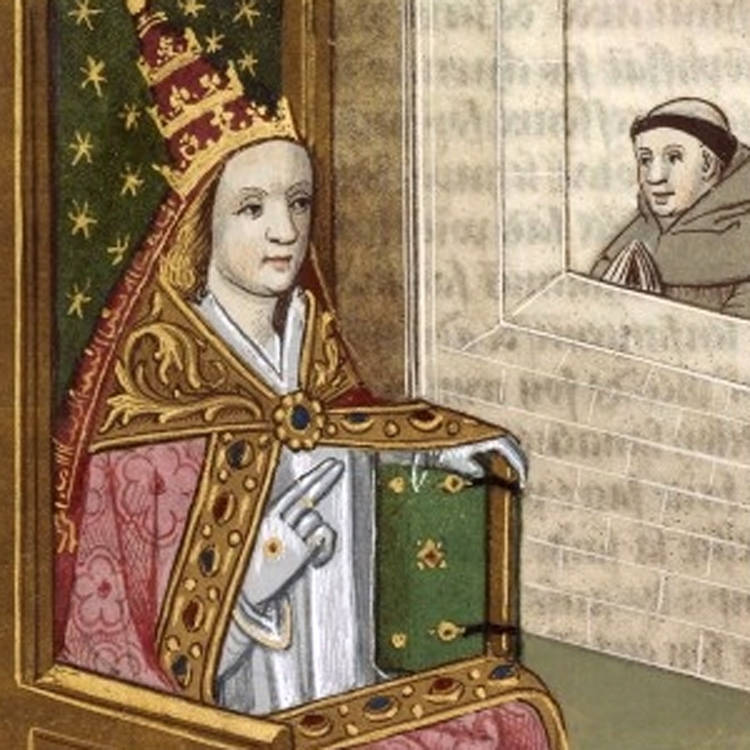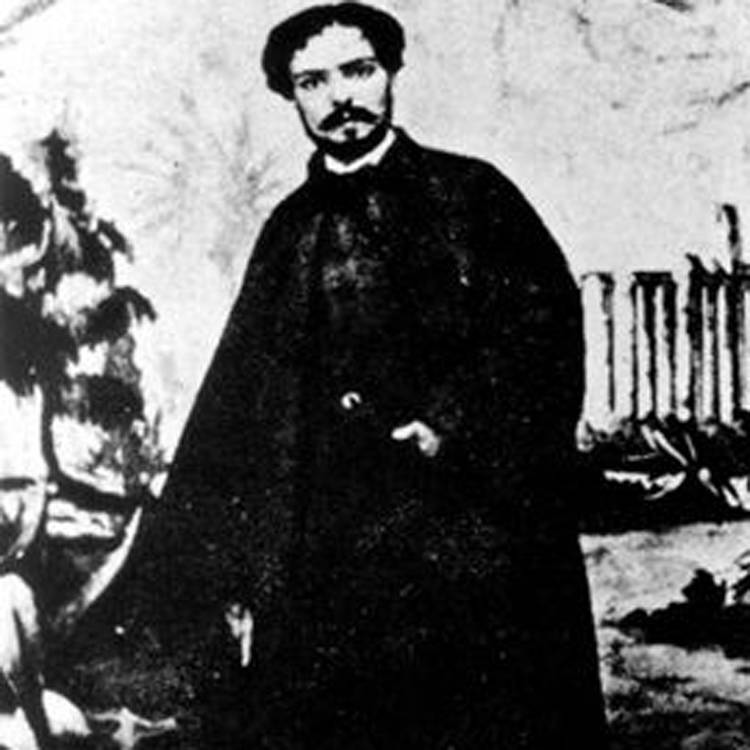It is considered one of the most pioneering novels of Greek prose of the 19th century, the most important work of Emmanuel Roidis and one of the most important Greek novels. Is "Papissa Ioanna", The" cursed "work of the great Greek writer who was condemned by the Greek Church as" anti-Christian and evil ".
The myth (for others the story) of Ioanna that deceived everyone and reached the papal office, had fascinated Rhoides when he first heard him as a child in Genoa. And it continues to fascinate the public to this day.
However, when the novel was published in 1866, which the author himself described as a "medieval study", it ran into… medieval-type reactions. And the story may have to do with the Roman Catholic Church, but the Church of Greece reacted strongly with the publication of the work, as it saw in it that some of its practices were judged negatively by the author. Of the Orthodox Church. The result; Rhoides and his work were excommunicated from the church.
Its history dates back to the 9th century, however, it was first heard in the 13th century and soon spread throughout Europe, while for centuries it was believed to be a true story.
The first written reference to Papissa Ioanna is found in the 13th century work "Chronica universalis, Mettensis". According to the author, Jean de Maugy, there was an anonymous Pope who was not listed as the Archbishop of Rome because she was a woman disguised as a man and who with her abilities managed to rise to the position of head of the Roman Catholic Church. However, even the chronicler was not sure whether the story was valid, pointing out that it needed to be verified.

The best-known version of the story about the poppy comes from the "Chronicle of Popes and Emperors" written by a Dominican monk. According to this version, it was an Englishwoman who arrived in Rome and disguised as a man managed to become a monk, taking the name Johannes Anglicus. Thanks to her education and manners, she became very likeable and soon managed to rise through the ranks of the Roman Catholic Church until she was elected Pope - and in fact voted unanimously - after the death of Leo IV (855). The tenure of duck Ioanna lasted two years, seven months and four days, when her identity was revealed.
During a procession, Papissa fell off her horse and, in front of the amazed eyes of those present, brought to light a baby. There are several versions for its end: one wants her to die during childbirth. And another, how he was stoned to death by the enraged crowd
In 1866 Emmanuel Roidis published "Papissa Ioanna". The story that unfolds in the 9th century AD. concerns a young girl, the daughter of a missionary, who, when she was orphaned, disguised herself as a man and entered a monastery. There he meets a visiting monk, whom he follows and lives with for 7 years in the same cell in a Benedictine monastery.

The two of them left the monastery and traveled to several countries, until in Athens, Ioanna left her partner and went to Rome, where with her abilities she managed to ascend to the Papal throne. However, she had become pregnant by her lover and during a procession the surprised crowd saw Pope John giving birth to a half-dead baby and being stoned to death by an angry crowd.
Rhoides with his work tried to stigmatize the wrong texts of the Catholic Church, but his criticism was also addressed to the Orthodox, provoking a strong reaction from the Greek Church. Many clergymen turned against Rhoides, led by Makarios Karystias, who launched an attack on the writer with "fiery" articles in the press.
The Holy Synod, in a circular, cursed the author and his work as "malignant and blasphemous", asking for the state's intervention to ban the book, which did not happen.
At the aphorism of the work, Roidis initially responded with humor with the supposed "Letters of an Agrinio" and with the signature of Dionysios Sourlis (in the newspaper Avgi, May 1866). But then, in a more serious and sharp tone, with "A few words in response to the aphoristic circular of the Synod", he took the place of the ecclesiastical curse.
The author died in Athens on January 7, 1904, of a heart attack. And as it was written in the newspaper SKRIP: "The day before yesterday morning, while the author was breathing the candles, the Holy Synod proceeded to remove the aphorism, after which the dying person announced the eternal mysteries".
